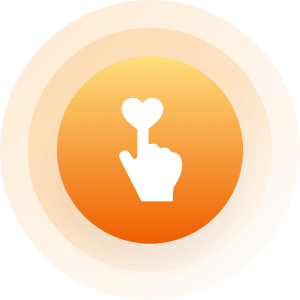| Topic: The nature of reality | |
|---|---|
|
It's more simple and less simple than that at the same time, under that theory even. Observation cannot create reality on its own, because the person observing it has to have some sort of reality already. It's a combination of the influencing factors that creates reality.
|
|
|
|
|
|
Reality is subject to the perception of the individual. What is real and what is not is determined by each mind. Since each individual is unique, their reality is unique and therefore a seperate state of reality and existence. Since every individual creates a seperate reality there are numerous realities that interact, combine, create and affect each other. Reality as a whole is like a flower with many petals that individually create the larger whole. Physics and science theories have themsevles suggested the potential for the number of these "flowers of reality" to be quite numerous. Quantum physics and the mathematical put forth in its theories suggest that there are numerous deminsions and states of reality. So it is well within reason to put forth a hypothesis that there is more than one reality.

|
|
|
|
|
|
The problem that comes with these hypothesis' is that we don't yet have a very good way of attempting to test them.
|
|
|
|
|
|
Reality is like time, ever present ever moving. To stop reality
one would have to suspend time. In thought we view real as, happening now. I think time is the factor to believe its NOW, and your living present sense of reality cannot ever stop being. Or we would be in time continuing in different realities and viewing us in each their own reality as many.  lol lol
|
|
|
|
|
|
i'll explain it for yall...
Reality:me getting capped within the next 10 years Not Reality: Lance Bass turning straight there,it has all been explained |
|
|
|
|
|
Testing something that is beyond our scope of perception does make it hard to prove. We Taoists like to say that man is limited in his understanding of reality becuase of the "six thieves," The six senses more or less for you laymen out there. We (humans) have become so reliant on what we see,touch,taste and hear that we fail to be able to comprehend what is beyond these senses. So how do we move past this and begin to find the truth to the posed question? Quite simple actually... use the one tool we have ( our minds ) that comprehends all the senses data differently. Comprehension of truth goes beyond sensory reponses. The first step is conceptualization. Our minds allow creativity, heck many animals have the same ability,( chimps make tools). With creativity we are able to think outside the box. All reality is subject to intrepation. My sensei had a saying," No two men ever see the same blade or grass the same way but that same blade of grass sees every man exactly the same. As the foot that steps upon it." Open your mind is all i am saying, the truth is still the truth regardless of what we may think or believed proved true.

|
|
|
|
|
|
Edited by
s1owhand
on
Sat 11/15/08 02:57 AM
|
|
|
“A casual stroll through the lunatic asylum shows that (personal reality) does not prove anything.”
Friedrich Nietzsche (slightly edited) the other reality, what is being called "agreed upon reality", the reality subject to experimental verification, that is the real reality, independent of the "observer", a gift from God. of course the real reality changes as we come to make new and deeper understanding of the world in which we live. oh well, that's life. at least we can know if we're wrong even if we can't be certain that we're right.  that's the beauty of science...and the pleasure of finding things out... http://www.youtube.com/watch?v=ozF5Cwbt6RY and http://www.youtube.com/watch?v=d1ZtRN-iGdQ&feature=related and most especially... http://www.youtube.com/watch?v=Sk8TVopOBGE&feature=related and, parts 2-5 too... |
|
|
|
|
|
Edited by
Bushidobillyclub
on
Sat 11/15/08 06:11 AM
|
|
|
Testing something that is beyond our scope of perception does make it hard to prove. We Taoists like to say that man is limited in his understanding of reality becuase of the "six thieves," The six senses more or less for you laymen out there. Our minds have allowed us to create many technologies to act as new senses. Our minds have discovered the most powerful sense ever, math. This sense does not determine our reality however, it can define many universes that are not ours, so it is up to us to falsify everything. Saying that QM "allows" many worlds, or many realities is false. That is merely one interpretation of strange behavior that we cannot explain. Its like some guy who did not witness the crash who only gets to see small pieces of the wreckage and then must come to a complete conclusion. It does not work when you do not have enough data points. We do not have enough data points to make a statement like QM allows many the worlds interpretation. It certainly is interesting, but I agree with slowhand, this still has little or nothing to do with individual perception. Except the"real" reality, does not change, only the fake reality that is constructed from our limited perception is what changes: our paradigms. Our imperfect senses allow our imperfect minds to extrapolate from the environment. The environment may not be as our minds construct based on this limited information, however we can falsify many such interpretations by using the scientific method. |
|
|
|
|
|
Edited by
SkyHook5652
on
Sat 11/15/08 11:36 AM
|
|
|
...It certainly is interesting, but I agree with slowhand, this still has little or nothing to do with individual perception. Except the "real" reality, does not change, only the fake reality that is constructed from our limited perception is what changes: our paradigms. Our imperfect senses allow our imperfect minds to extrapolate from the environment. The environment may not be as our minds construct based on this limited information, however we can falsify many such interpretations by using the scientific method. Continuing along the same line of logic, we end up at the conclusion that the "real" reality may never be perceived. And even if it were perceived, there is no way to know it for a fact becuase the "scientific method" does not allow for proof of truth - only proof of falsehood. So the "real reality" is, for all practical purposes, completely useless because there is no way to know what it is - only what it isn't. Which puts us right back at the only practical definition for reality must be based on perception and agreement. |
|
|
|
|
|
Continuing along the same line of logic, we end up at the conclusion that the "real" reality may never be perceived. And even if it were perceived, there is no way to know it for a fact becuase the "scientific method" does not allow for proof of truth - only proof of falsehood. """"does not allow for proof of truth - only proof of falsehood."""" so you are guilty till proven innocent -- i knew it |
|
|
|
|
|
Nothing is 'real'...
.........it is all illusion. 
|
|
|
|
|
|
who said that
and did i really hear it  
|
|
|
|
|
|
who said that and did i really hear it   Depends on your perception...    Hi Robin ! 
|
|
|
|
|
|
who said that and did i really hear it   Depends on your perception...    Hi Robin !  hi Lee    but my perception does not make it so it only makes me think it |
|
|
|
|
|
So, it seems we've come to a point where the agreement is there's no way to really know. I still purpose the issue is to find out what is real in the first place. If we're all just figments of someones imagination, living in someones dream until they wake up...then it doesn't matter our perspective. How do we prove we're even real?
|
|
|
|
|
|
So, it seems we've come to a point where the agreement is there's no way to really know. I still purpose the issue is to find out what is real in the first place. If we're all just figments of someones imagination, living in someones dream until they wake up...then it doesn't matter our perspective. How do we prove we're even real? did you watch that episode did ya huh huh huh did ya i think it was twilight zone that exact story line |
|
|
|
|
|
Edited by
Bushidobillyclub
on
Sat 11/15/08 04:10 PM
|
|
|
I think there is ways of knowing. I think science does prove things. Its true we only have this existence, but from the moment we are born we are refining our understanding of our environment, we are imperfect computers, but we make ones that while simple are excellent at capturing data, so we have made great progress by using computers as our never forgetting data dump, and our super calculators, and we use our ration to sift through looking for patterns that will achieve a sharper and sharper definition of reality.
It all comes down to thresholds, what amount of error can you live with? Even if you discovered that your mind was perfect, how would you know? Retest your entire life, then you die, and the next generation runs over your data with a fine tooth comb, no errors, the next generation runs over the data again, no errors, and the next and the next. What if thousands of years, hundreds of thousands of years roll by, and no errors. The last person runs the last check before the last star goes kaput, and this one mind was never wrong . . . . Seems to me that would be right. I say we are right until the data says we are not. And if the data says I missed a decimal place like this .00000000000001234 and it should have been .000000000000012345 , well I can live with that. |
|
|
|
|
|
So, it seems we've come to a point where the agreement is there's no way to really know. I still purpose the issue is to find out what is real in the first place. If "there's no way to really know" then how do you "find out"? My whole point all along has been that (just as you said) you can't "find out" so you must decide. |
|
|
|
|
|
So, it seems we've come to a point where the agreement is there's no way to really know. I still purpose the issue is to find out what is real in the first place. If "there's no way to really know" then how do you "find out"? My whole point all along has been that (just as you said) you can't "find out" so you must decide. it is what it is because we say it is whether it is or not |
|
|
|
|
|
I think there is ways of knowing. I think science does prove things. Its true we only have this existence, but from the moment we are born we are refining our understanding of our environment, we are imperfect computers, but we make ones that while simple are excellent at capturing data, so we have made great progress by using computers as our never forgetting data dump, and our super calculators, and we use our ration to sift through looking for patterns that will achieve a sharper and sharper definition of reality. It all comes down to thresholds, what amount of error can you live with? Even if you discovered that your mind was perfect, how would you know? Retest your entire life, then you die, and the next generation runs over your data with a fine tooth comb, no errors, the next generation runs over the data again, no errors, and the next and the next. What if thousands of years, hundreds of thousands of years roll by, and no errors. The last person runs the last check before the last star goes kaput, and this one mind was never wrong . . . . Seems to me that would be right. I say we are right until the data says we are not. And if the data says I missed a decimal place like this .00000000000001234 and it should have been .000000000000012345 , well I can live with that. Doesn't that mean that there are "gradients" of reality? Some things being more real than other things? That just means that there is no "absolute/universal reality". |
|
|
|
|














